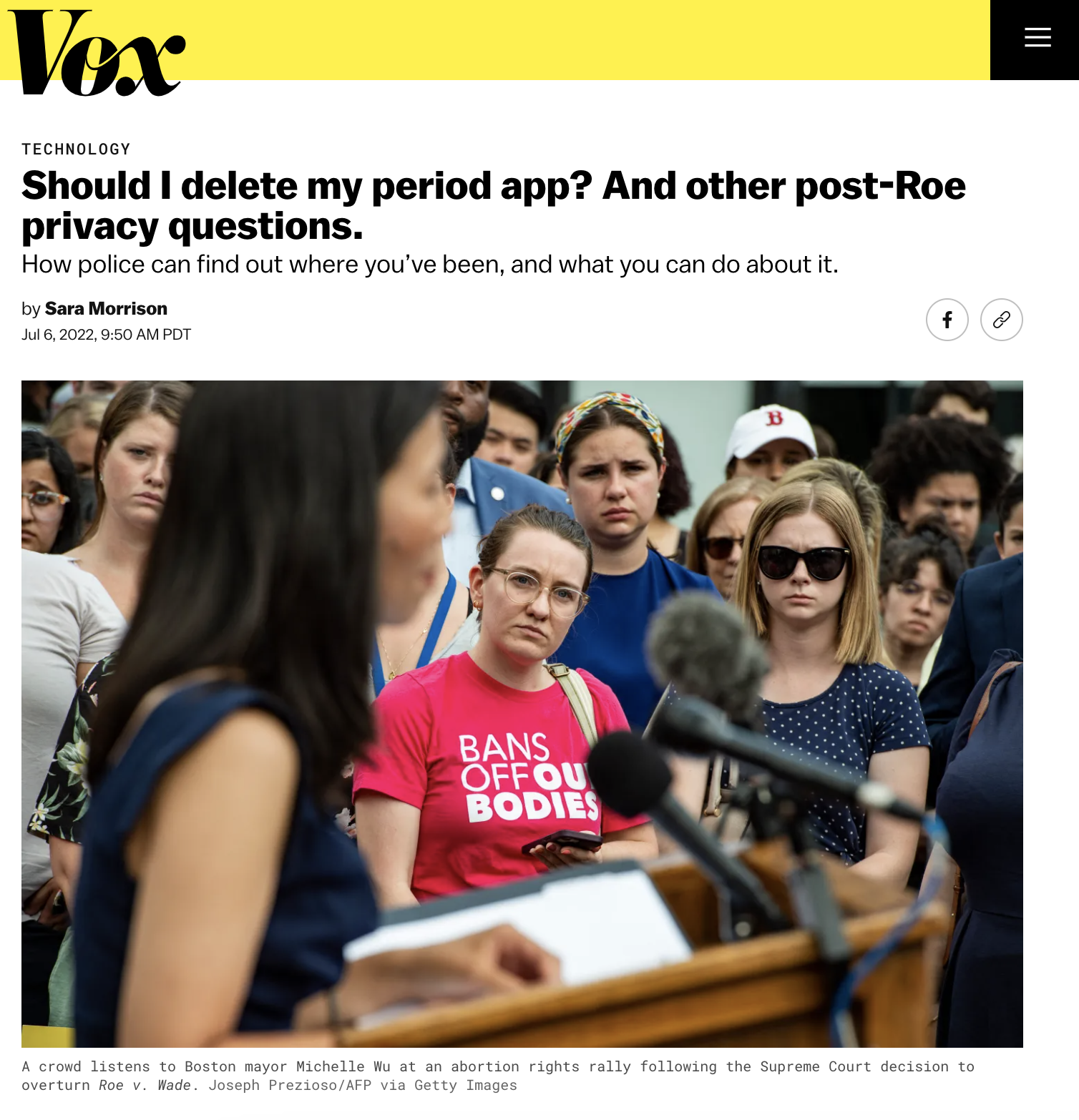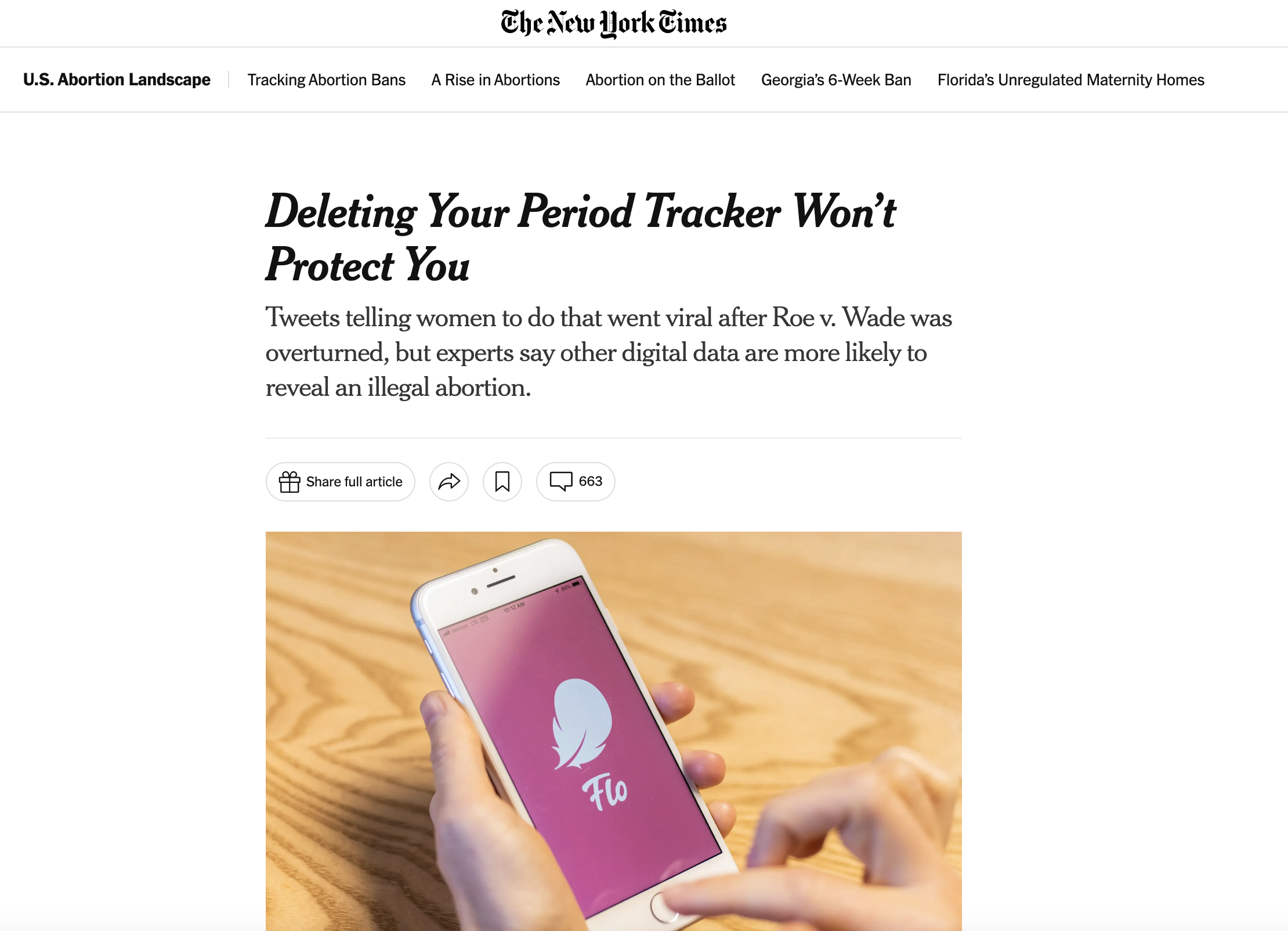Overturn of Roe v. Wade and Period Tracking
Understanding privacy concerns of users of period tracking apps post-Roe.
The Context
The U.S. Supreme Court’s overturn of Roe v. Wade in 2022 led to growing concerns that law enforcement could request and use in court the personal data users share with period tracking apps (Vox, NYTimes). The media’s initial focus on the threats to period data privacy in a post-Roe context and resulting suggestions to immediately delete period tracking apps begged the question: were people in fact making any changes in how they monitor their period as a result of the overturn? In this research, we examined if and how users are reacting to the Supreme Court decision and these calls from the media. We were specifically interested in understanding the decision-making process behind adopting (or not) certain mitigation strategies and approaches to data privacy.
Research Questions:
- How have people changed the way they track their period in response to the Supreme Court’s decision to overrule Roe v. Wade?
- How have people's perceptions of period data privacy changed in response to the Supreme Court’s decision to overrule Roe v. Wade?
- What factors influence the decision-making process behind choosing to use (or not use) various mitigation strategies?
After the overturn, each state was able to decide for itself how to deal with the issue of abortion. As a result, in our recruitment, we consciously made the choice to seek out participants that resided in states more directly impacted by the overrule. This was done because we believed these folks would predominantly be the ones having to make changes and consider the new legal landscape when thinking about their period tracking.
In the recruitment process, we also wanted to focus on a few factors that would allow us to find people that this issue was most relevant to; consequently, in our screener survey, we specifically looked for 1) people who were using or had at some point used a period tracking app; 2) people who were menstruating in the past 12 months; 3) folks who had at least some familiarity with the overturn of Roe v. Wade.
After carefully preparing an interview protocol, I conducted two rounds of semi-structured interviews with 22 participants (a total of 26 interviews) from 9 different U.S. states. This more longitudinal approach allowed us to see if there were any changes to participants’ habits and attitudes between round 1 (shortly after the overturn in 2022) and round 2 (February 2024). In these conversations, I inquired about people’s period-tracking habits, privacy concerns regarding period tracking apps, and the impact of the Supreme Court’s decision on their period-tracking, other online behavior, and their daily lives.
I analyzed the data using an inductive thematic analysis approach and found that, while most people were concerned about how their period data might be used in a post-Roe context, very few were making concrete changes, such as deleting their menstrual trackers. The lack of clarity on how the law applies to this health information was worrisome for many but, for the most part, was not concerning enough to inspire more drastic change in their use of period trackers. Nevertheless, some participants were making changes in their daily lives (e.g., re-locating or getting permanent birth control) and a few even increased how much they track as a way to prevent unwanted pregnancy and any potential resulting “wrestling with the law.”


Project Timeline
This project began in the summer of 2022 shortly after the overturn of Roe v. Wade. We started recruiting participants at the beginning of August, with the first round of interviews commencing a couple of weeks later. We conducted a second round of interviews in January and February of 2024 to gain a more longitudinal understanding of any potential changes in privacy perceptions. As of October 2024, we reported our findings and recommendations in a paper soon to be submitted to an academic journal.

